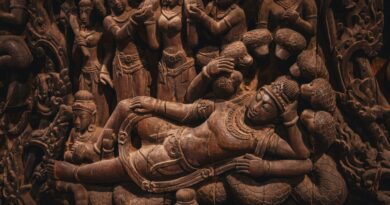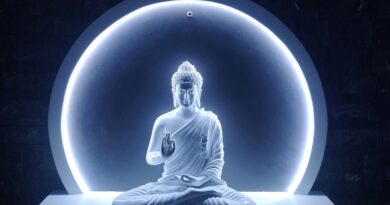
The Creator Within
When the Universe Looks Back at Itself and Asks, “Who Am I?”
There is a question as old as thought itself. It echoes across temples and laboratories, deserts and data centers alike:
Did someone—or something—create all this? Or did existence simply arise, self-born and eternal, like an infinite ocean with no shore and no beginning? The question of a Creator is not merely about origins. It is about meaning—about whether this vast cosmos has a soul, and whether we do.
The Search for the Source
From the first humans who looked at the stars and wondered, to the physicists who map the birth of the universe in equations, one instinct has remained constant: to trace the world back to its source. Science tells us the universe began with a Big Bang—an explosion not in space, but of space itself. Yet when we ask what caused it, we meet silence.
Where did the laws of nature come from? Why does anything exist at all? Why should atoms give rise to awareness—to you—staring out at the night sky? Even reason, when followed far enough, leads to mystery. And in that mystery, many have sensed not absence, but presence.
Beyond the Distant Maker
The common idea of a Creator—a divine architect shaping the universe from outside—has its beauty, but also its limits. It implies distance: the Maker and the made, the worshipper and the worshipped. But in the ancient philosophy of Hinduism, the question of creation takes a different turn. It does not ask, “Who made the universe?” It asks instead, “Who is dreaming this reality?”
The Wisdom of Brahman and Ātman
In the Upanishads—the mystical heart of Hindu thought—the sages speak of Brahman, the formless, infinite reality that underlies all things.
Brahman is not a god among gods. It is not a being at all. It is Being itself—the pure consciousness in which the universe arises, exists, and dissolves, like waves in the sea.
And what of us—the tiny sparks of awareness within this vast play? The seers declared something astonishing: Ātman, the Self within each of us, is not separate from Brahman. Tat Tvam Asi—Thou art That.
The Creator and the created are one. The ocean has become the wave. And the wave, upon awakening, realizes it was never anything but the ocean all along.
The Eye and the Appreciation
The eye sees a sunset—but what is it that appreciates it? Science can trace photons, neurons, and visual cortexes. But the feeling of beauty—the silent awe that rises in you—is not found in any cell. That awareness which beholds the sunset is Ātman, the inner witness.
And the sunset itself, the world it belongs to, is Brahman, appearing as color and form.
The seer and the seen are not two. It is Brahman experiencing Brahman— consciousness gazing at its own reflection through countless eyes.
The Creator as Creation
In this view, creation is not an event in time—it is a timeless unfolding. Brahman did not make the world; Brahman became the world. Every atom, every thought, every breath is a pulse of divine expression. The Hindu cosmology does not see creation as once-and-done. It is cyclical, eternal—universes born, dissolved, and reborn, each breath of Brahman giving rise to infinite worlds.
As the Rig Veda says:
“Truth is One; the wise call it by many names.”
And among those names are love, beauty, silence, and you.
The Awakening of the Dreamer
When we meditate, pray, or sit in stillness, we are not reaching toward God. We are turning inward, toward the same consciousness that sustains galaxies. The drop is remembering it is water.
The journey of spiritual awakening, then, is not about finding the Creator—it is about remembering that the Creator is what you already are. This is the deepest meaning of Self-realization: not the small self of personality and thought, but the vast Self—the Ātman—that is one with the infinite.
When this is known not as belief but as experience, the question “Is there a Creator?” dissolves.
There is only creation, knowing itself.
The Silence That Remains
And yet, words can only point. The truth of Brahman cannot be captured by thought, because thought itself arises within it. The closer one comes to the Source, the quieter the mind becomes—until only silence remains.
In that silence, there is no believer or skeptic, no question or answer—only presence. Only the still, luminous awareness that was here before the first word was spoken.
Closing Reflection
So—is there a Creator? Perhaps not as a separate being who watches from beyond the stars. But there is Creation, unfolding as the breath of Brahman, and there is Consciousness, shining as the light of Ātman within us all.
The Creator is the creation. The creation is the Creator. And the one asking the question was never apart from either.
When you look at the night sky and feel wonder rise unbidden, that wonder is not yours alone. It is Brahman remembering Itself—through you.
Photo by Greg Rakozy downloaded from unsplash.com



